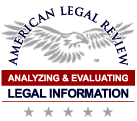TRADEMARKS: EVALUATION OF PRO SE TRADEMARK SERVICES
A trademark is a word, phrase, symbol or design, or a combination of words, phrases, symbols or designs, that identifies and distinguishes the source of the goods of one party from those of others.
A service mark is the same as a trademark, except that it identifies and distinguishes the source of a service rather than a product. Throughout this booklet, the terms "trademark" and "mark" refer to both trademarks and service marks.
Trademarks, copyrights and patents all differ. A copyright protects an original artistic or literary work; a patent protects an invention.
You can establish rights in a mark based on legitimate use of the mark. However, owning a federal trademark registration on the Principal Register provides several advantages:
- constructive notice to the public of the registrant's claim of ownership of the mark;
- a legal presumption of the registrant's ownership of the mark and the registrant's exclusive right to use the mark nationwide on or in connection with the goods and/or services listed in the registration;
- the ability to bring an action concerning the mark in federal court;
- the use of the U.S registration as a basis to obtain registration in foreign countries; and
-the ability to file the U.S. registration with the U.S. Customs Service to prevent importation of infringing foreign goods.
Any time you claim rights in a mark, you may use the "TM" (trademark) or "SM" (service mark) designation to alert the public to your claim, regardless of whether you have filed an application with the USPTO. However, you may use the federal registration symbol "®" only after the USPTO actually registers a mark, and not while an application is pending. Also, you may use the registration symbol with the mark only on or in connection with the goods and/or services listed in the federal trademark registration.
Below are some TRADEMARK products and services examined by the American Legal Review:
![]()
Find a Qualified Intellectual Property Attorney at LegalMatch
Intellectual property law covers special types of intangible properties or protective assets, such as patents, copyrights, trademarks, and trade secrets. Intellectual property lawyers are attorneys that specialize in the study of laws which bind these properties.
Trademarks: Trademarks are a business's way of identifying itself to consumers, whether through a particular name, logo, or trade dress. Trademark laws work to protect those identifying marks from being used by other companies, avoiding a likelihood of confusion in trademarks and confusion between brands. Only distinctive trademarks can be protected under the law-generic trademarks and words cannot be the exclusive property of a business, even if they began as distinctive trademarks.
Copyrights: Legal copyrights protect a creator's rights to reproduce and display his or her works. With a proper copyright in hand, you can defend yourself against musical work copyright infringement, movie piracy, and even secure copyright protection for architectural works. Most intellectual property lawyers will happily walk you through common defenses to copyright infringement if you have been accused of violating copyright law.
Patents: Patents are a category of intellectual property that pertains to invention. Patenting an invention prevents other people from reproducing and selling it and protects the patent-holder against myriad types of patent infringement. In order to qualify for a patent, an invention must conform to standards of patent novelty, patent non-obviousness, and patent utility. Intellectual property lawyers can provide patent infringement remedies in the case of any infringements.
Trade Secrets: Trade secrets are business "secrets" (recipes, procedures, etc.) whose economic value is dependent upon those secrets remaining exclusive to the company who owns them. Reasonable security measures for trade secrets must be in place in order for the law to protect those secrets, and trade secrets should also be non-obvious. Trade secret subject matter may include formulas, patterns, compilations, programs, devices, or methods/processes.
Learn more about finding a qualified Trademark or Intellectual Property Attorney here.
ADDITIONAL TRADEMARK RESOURCES:
LEGAL CATEGORIES:
BankruptcyBusiness Law
Citizenship
Corporations
Credit Repair
Deeds
Dissolution
Divorce
Employee Handbooks
Employee Manuals
Employment Law
Health Care
Home Sale
Immigration
Incorporation
Land Contract
Landlord & Tenant
Last Will & Testament
Lease Agreements
Legal Separation
Limited Liability Co./LLC
Living Wills
Living Trusts
Marital Separation
Name Change
Naturalization
No Fault Divorce
Partnerships
Power of Attorney
Premarital Agreements
Promissory Notes
Quitclaim Deeds
Rental Agreements
Separation Agreements
Trademarks
Trusts
Uncontested Divorce
Wills
HOME PAGE

